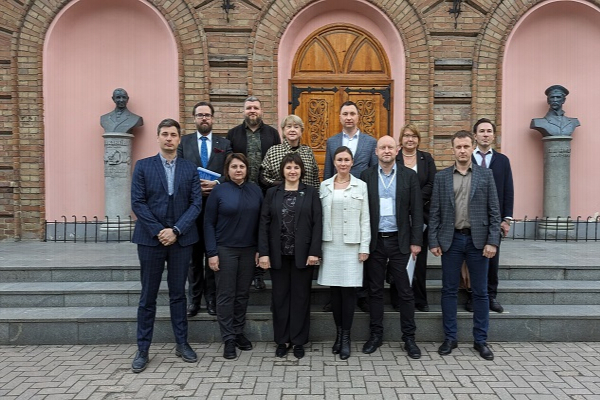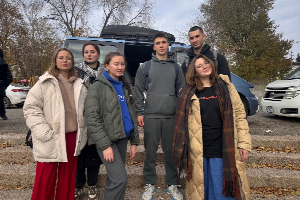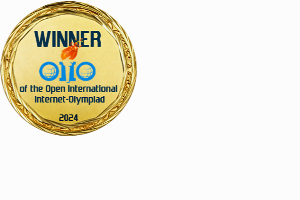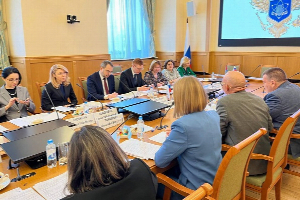
On March 19, an expanded meeting of the working group on the development of educational sciences under the Council of Rectors of Universities in the South of Russia and the Russian Academy of Education was held, dedicated to the beginning of the Year of the Family in the Russian Federation.
The meeting was chaired by the President of the Southern Federal University, Chairman of the Council of Rectors of Universities of the South of Russia Marina Borovskaya in a visiting format at the site of the Azov State Pedagogical University in Berdyansk, Zaporizhian region of the Russian Federation. It was attended by over 50 representatives of universities of the Southern Federal District, representatives of public authorities, expert communities.

"The Working Group on the Development of Educational Sciences is a project initiated more than a year and a half ago by the Council of Rectors of Universities in the South of Russia," says Marina Borovskaya, President of SFedU. "The group allows to unite the professional expert community of the South of Russia around those projects and assignments in the field of education, science, economics and social development formulated by the President of Russia, to involve regional experts in the discussion and preparation of proposals for national projects and programs, to enhance the role of social sciences and humanities in society and management practice."
At the beginning of the meeting, Sergey Dyuzhikov, Academic Secretary of the Council of Rectors of Universities in the South of Russia, announced information about the number of participants – more than 50 representatives of universities of the Southern Federal District and 15 present in the hall.
The participants of the working group meeting were welcomed by Olga Petrova, Deputy Minister of Science and Higher Education of the Russian Federation, and Svetlana Kochetova, Deputy Head of the Federal Service for Supervision of Science and Education.
Vladimir Gurba, Deputy Plenipotentiary Representative of the President of the Russian Federation in the Southern Federal District, noted the relevance of research aimed at developing humanitarian and pedagogical studies that strengthen ideological sovereignty, and stressed the need to introduce these methods into the practice of educational organizations. He emphasized the role of the university's community of historians and political scientists in the development and testing of the courses "History of Russia" and "Fundamentals of Russian Statehood".
Lyubov Dukhanina, Chairman of the SEC in the field of education, Chairman of the Expert Council under the State Duma Committee on Science and Higher Education, President of the National Education Resources Foundation, Chairman of the Association of Non-Governmental Education, outlined a request to the expert community of the South of Russia for a public and professional discussion of the project "Pedagogical Worker of Higher Education". Welcoming the participants of the meeting, Olga Vasilyeva, President of the Russian Academy of Education, stressed the role of the expert community in shaping the joint research agenda in the field of education sciences, noted that the discussed professional standard of a higher school teacher should be a tool for developing the human resources potential of universities.
Director of the Institute of Global Studies of the Financial University under the Government of the Russian Federation Sergey Belokonev welcomed the participants on behalf of the federal team of the DNA of Russia project. Acting Rector of the Azov State Pedagogical University Ekaterina Stepanyuk noted that universities of the Zaporozhian region are glad to host the expert community of the South of Russia.
The key issue on the agenda of the meeting was the public and professional discussion of the draft professional standard "Pedagogical worker of higher education". Lyubov Dukhanina, Chairman of the SEC in the field of education, delivered the main report. In general, the university community expressed support for the idea and format of introducing the standard into the activities of higher education, which will allow universities to build more effective strategies and mechanisms for the development of human resources.
"According to the results of the discussion in universities in the South of Russia, over 80 amendments and proposals to the draft standard have been prepared," says Vladimir Kirik, Director of the Academy of Psychology and Pedagogy. – Among them are proposals to include mentoring and tutoring activities in the list of labor functions, to clarify the role of a teacher as an organizer of socio-professional projects, to expand types of educational activities in terms of introducing new forms of educational organizations (project intensives, hackathons, accelerators) along with traditional types of educational activities, to revise educational functions, which in this edition The draft standards are formulated in the logic of the event approach, in the context of civilizational and personality-oriented approaches."
Expert comments on the issue "On scientific and pedagogical support for the introduction of teaching courses "History of Russia" and "Fundamentals of Russian Statehood" in the higher school system" were made by Sergey Belokonev, Director of the Institute for Global Studies at the Financial University under the Government of the Russian Federation, Vardan Baghdasaryan, Head of the Pedagogy department at the Higher Political School in the name of I. A. Ilyin at the Russian State University for the Humanities, Maria Ponomareva, Director of the Institute of History and International Relations of the Southern Federal University, Roman Pupykin, Head of the Department of Theoretical and Applied Political Science of the Southern Federal University. Experts are unanimous in the position that these courses are one of the key tools for educating young people in the spirit of traditional spiritual values of Russian society, and allow students to form an idea of Russia as a unique country-civilization endowed with a special historical and cultural mission.
Vladimir Kirik, head of the Educational Cluster of the South of Russia project at the Council of Rectors of Universities in the South of Russia, Director of the Academy of Psychology and Pedagogy of the Southern Federal University, spoke about the tasks of forming a portfolio of cross-cutting research projects in the field of education sciences in the South of Russia and the plan of the working group on the development of education sciences for 2024.
Taking into account the proposals of the universities of the Southern Federal District, the Action Plan for the Year of the Family in the Southern Federal District was discussed and approved.
Short link to this page sfedu.ru/news/74860




